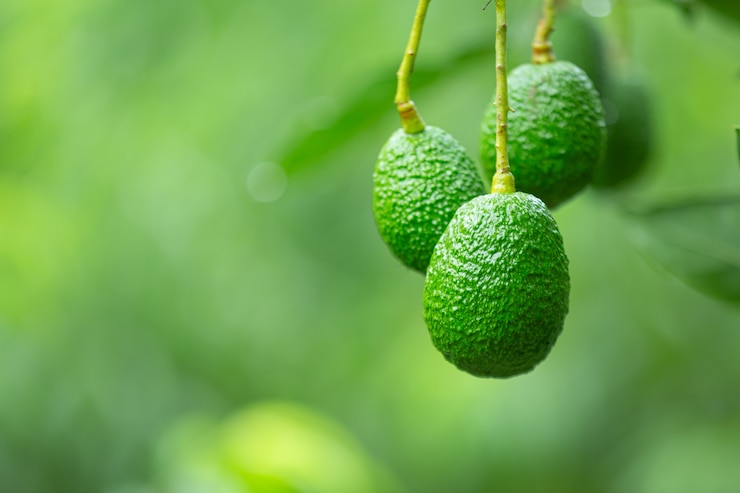Agriculture in South Africa is diverse, with opportunities for growing high-value, capital-intensive crops. While these crops require substantial initial investment, they offer high returns when managed well. Here are ten capital-intensive crops that farmers should prepare thoroughly for before embarking on their cultivation, along with insights and recommendations for each.
1. Avocados
Insights: Avocados are a high-value crop with increasing demand both locally and internationally. Establishing an avocado orchard requires significant investment in quality seedlings, irrigation systems, and pest control measures.
Recommendations: Invest in disease-resistant rootstocks and high-quality seedlings. Implement a robust irrigation system to ensure consistent water supply, and engage in regular pest and disease monitoring.
2. Macadamia Nuts
Insights: Macadamia nuts have a long establishment period but offer lucrative returns. They require substantial investment in land preparation, irrigation, and ongoing maintenance.
Recommendations: Choose well-drained, deep soils and ensure adequate spacing for tree growth. Plan for a long-term investment, as trees take several years to mature and start producing.
3. Grapes (Wine and Table)
Insights: Growing grapes for wine or table consumption involves high initial costs for vineyard establishment, trellising, irrigation, and specialized equipment.
Recommendations: Select suitable grape varieties based on climate and soil conditions. Invest in proper trellising and pruning techniques to maximize yield and quality. Consider joining a cooperative to access shared resources and marketing channels.
4. Blueberries
Insights: Blueberries are in high demand for their health benefits but require acidic soils, high-quality plants, and precise irrigation systems.
Recommendations: Test and amend soil to achieve the desired pH levels. Use drip irrigation for precise water management and mulching to retain soil moisture. Regularly monitor for pests and diseases.
5. Citrus Fruits
Insights: Citrus orchards, including oranges, lemons, and mandarins, require substantial investment in land, irrigation, and pest management.
Recommendations: Select disease-resistant rootstocks and implement a comprehensive irrigation plan. Regular pruning and pest control are essential to maintain tree health and productivity.
6. Deciduous Fruits (Apples, Pears, Peaches)
Insights: These fruits require specific climatic conditions, substantial infrastructure for orchards, and ongoing maintenance.
Recommendations: Choose appropriate varieties for your region and invest in high-density planting systems to maximize yield per hectare. Implement integrated pest management (IPM) practices to reduce chemical use.
7. Almonds
Insights: Almonds are water-intensive and require significant investment in irrigation infrastructure and frost protection.
Recommendations: Ensure access to reliable water sources and consider planting in regions with minimal frost risk. Invest in efficient irrigation systems and monitor for pests like the almond moth.
8. Olives
Insights: Olive production requires a long-term commitment with high initial costs for orchard establishment and processing equipment.
Recommendations: Choose well-drained soils and drought-resistant varieties. Plan for a processing facility to add value to your produce, and explore both table olive and olive oil markets.
9. Tea
Insights: Growing tea involves high costs for plantation establishment, specialized harvesting equipment, and processing facilities.
Recommendations: Select high-quality tea varieties and prepare for intensive labor during harvesting. Invest in processing equipment to produce high-grade tea products and consider organic certification for premium markets.
10. Hops
Insights: Hops are essential for beer production and require specific growing conditions, trellising systems, and processing facilities.
Recommendations: Ensure suitable climate conditions for hop growth and invest in robust trellising systems. Harvesting and processing hops require specialized equipment, so plan for these investments.
General Recommendations for Capital-Intensive Crop Farming
- Feasibility Studies: Conduct thorough feasibility studies to understand market demand, climate suitability, and potential returns on investment.
- Access to Capital: Secure sufficient funding for initial investments and ongoing maintenance. Explore grants, loans, and partnerships to support your venture.
- Irrigation and Water Management: Invest in efficient irrigation systems and ensure access to reliable water sources. Consider drip or micro-spray irrigation for precision.
- Pest and Disease Management: Implement integrated pest management (IPM) strategies to minimize chemical use and ensure sustainable practices.
- Technology and Equipment: Invest in modern agricultural technologies and equipment to enhance productivity and quality. This includes automated irrigation systems, mechanized harvesting tools, and processing facilities.
- Market Research: Identify potential markets and establish distribution channels. Consider value-added products to increase profitability.
- Training and Expertise: Gain knowledge and skills in the specific crop you intend to grow. Participate in training programs, workshops, and consult with agricultural experts.
- Sustainability Practices: Incorporate sustainable farming practices to ensure long-term viability. This includes soil conservation, water management, and reducing chemical inputs.
- Quality Control: Implement strict quality control measures throughout the production and processing stages to meet market standards and consumer expectations.
- Risk Management: Develop a comprehensive risk management plan to address potential challenges such as climate variability, pests, and market fluctuations.
By carefully planning and preparing for these capital-intensive crops, South African farmers can leverage their potential for high returns and contribute to the growth of the agricultural sector.
Join 'Farmers Mag' WhatsApp Channel
Get the latest Farming news and tips delivered straight to your WhatsApp
CLICK HERE TO JOIN






